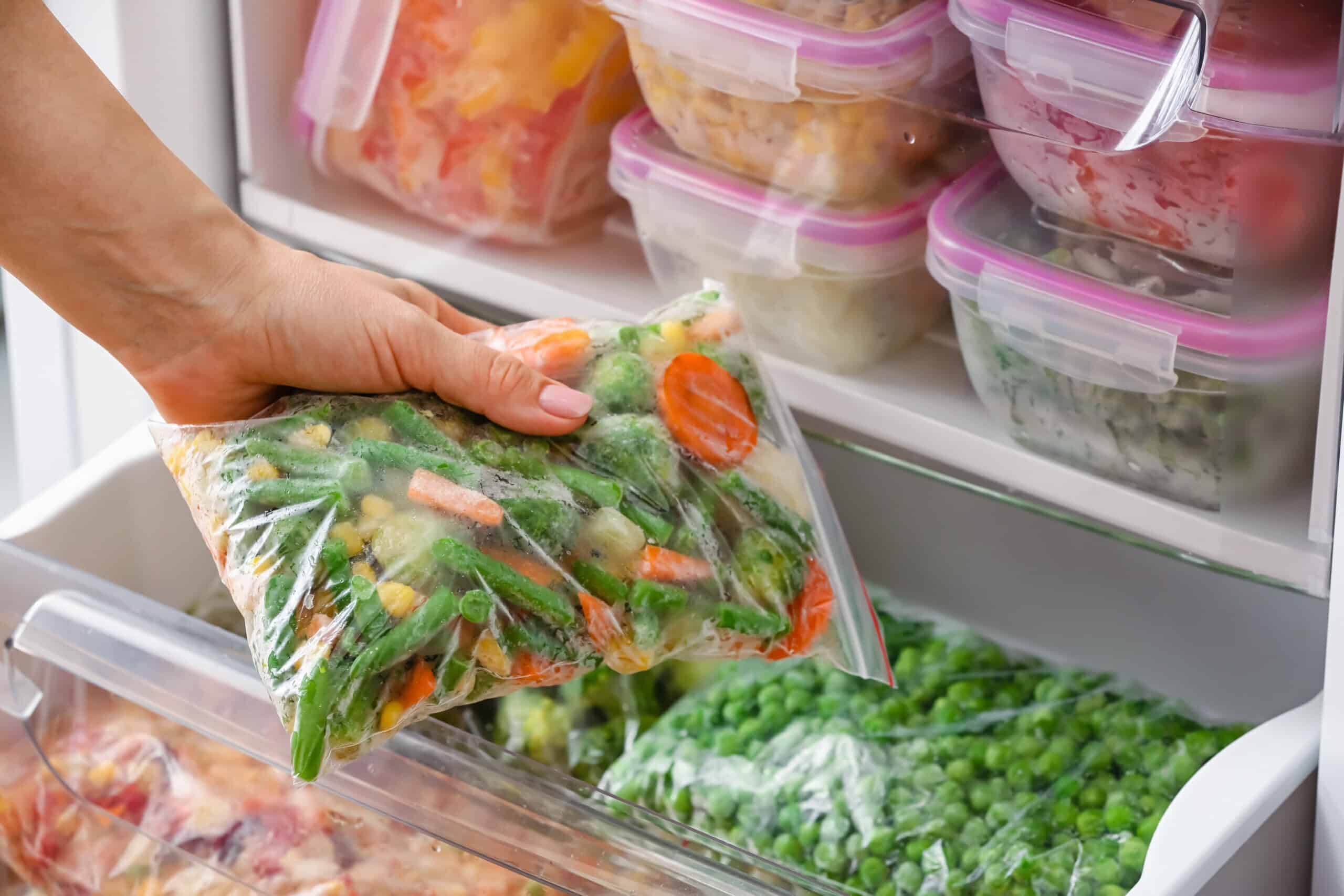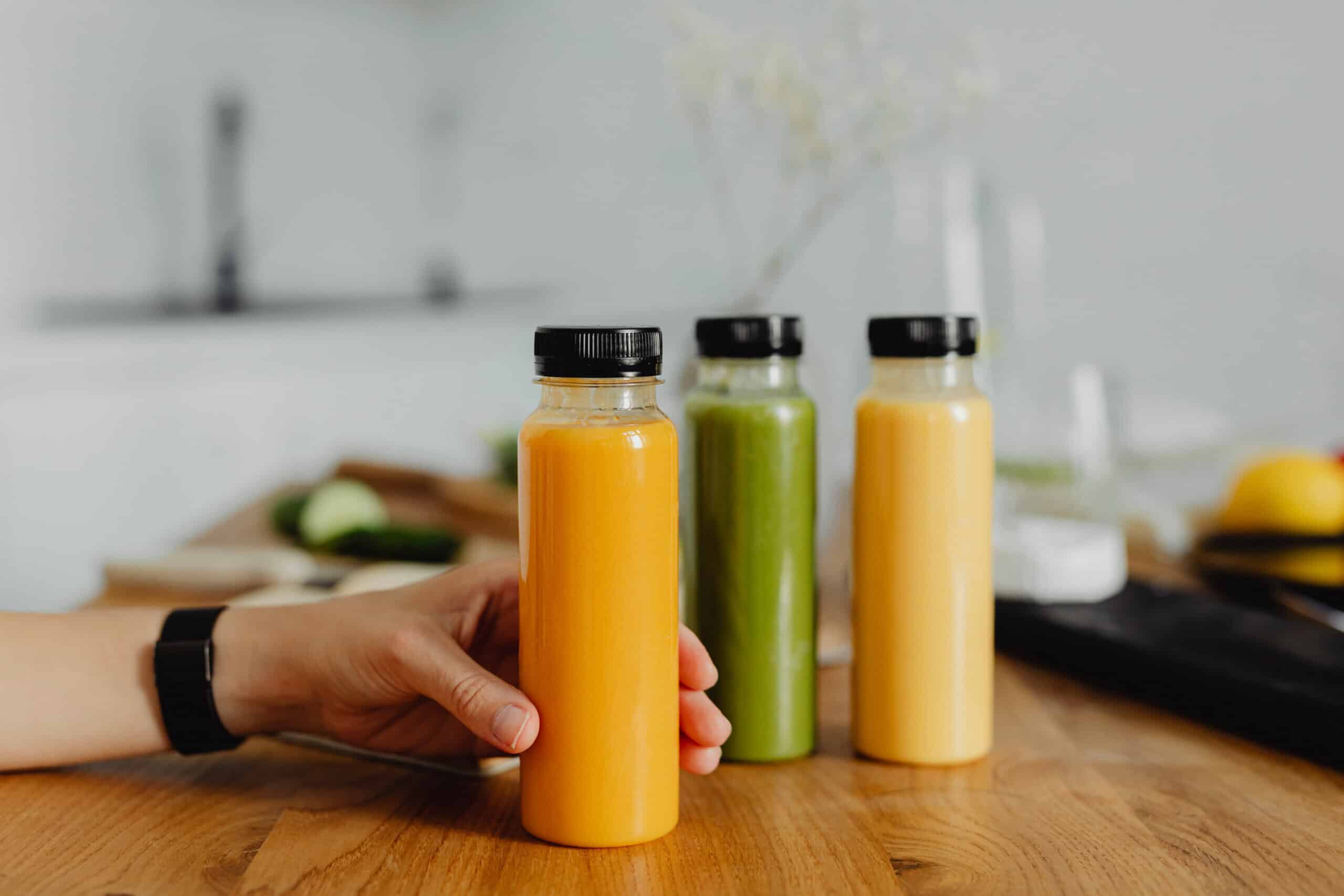A shopping guide to fermented foods
By Gabrielle Newman, Nutritionist, The Fast 800
Fermentation is an ancient technique for preserving foods. The process encourages yeast or bacteria to break down carbohydrates (sugars) into alcohol or acid.
In addition to preserving foods, fermentation also achieves another wonderful benefit: probiotics, which help to feed and balance our gut microbiome.
Our microbiome (or gut flora) already consists of trillions of bacteria that we’ve been symbiotically living with since birth and which affect many facets of human health, most notably digestion and immunity. We can manipulate our gut flora by eating more (or less) fibre, consuming probiotics, taking certain medications and through our lifestyle choices. It’s important to try to foster a healthy microbiome as good health (including immunity) starts in the gut.

High fibre, Mediterranean-style food with additional fermented foods helps to balance and maintain a healthy microbiome.
While some fermented foods, like sauerkraut or kombucha, are simple enough to make at home they can take 2 or more weeks to ferment properly and produce helpful probiotics. They can also require very specific conditions to thrive. So sometimes it’s easier to buy your fermented products from your local supermarket or health food store. With so many brands and versions appearing on our shelves it’s becoming more difficult to tell the real from the phoney ferments.
Here are some tips for buying common fermented products:
Sauerkraut/Kimchi
Sauerkraut is fermented cabbage. It is typically just cabbage and salt but may have beetroot, turmeric, cumin seeds or other additions.
Kimchi is also fermented cabbage but with added carrot, chilli, ginger, garlic, salt, fish sauce and radish (though this may vary depending on the recipe).
When buying sauerkraut or kimchi:
- It should be raw – cooking your sauerkraut/kimchi will destroy the beneficial probiotics and substantially reduce the vitamin C content.
- Buy from the fridge – your sauerkraut or kimchi needs to be kept in the fridge to preserve the helpful bacteria and stop it from fermenting further.
- Choose organic – to minimise the impact of chemicalised farming processes.
TIP: Sauerkraut and kimchi contain minimal calories. Add a tablespoon to the side of your eggs at breakfast or mix with a salad to get a dose every day (or have it straight from the jar like I do!)
If you want to make your own, try our simple Mild Kimchi Sauerkraut recipe. Try it with our Kimchi Tofu Rice Bowl, or Mushroom Omelette with Kimchi Sauerkraut.

Apple cider vinegar
Apple cider vinegar is a favourite around The Fast 800 headquarters and has been researched extensively (including some of our own experiments!). Read more about the health benefits of apple cider vinegar.
When buying apple cider vinegar:
- It should state that it is raw, unpasteurised and unfiltered.
- The “mother” should be visible in the bottle – it looks cloudy or sometimes like a little jellyfish. The “mother” are the yeasts and bacteria which contain helpful probiotics.
- It doesn’t have to be in the fridge.
TIP: Add 1 tsp to a glass (200ml) of water and drink before main meals to help digestion. Or make a simple dressing with 1 tbsp apple cider vinegar, 2 tbsp extra virgin olive oil, 1 tsp mustard (seeded or Dijon work well), salt and pepper. Add all ingredients to a jar with a screw top lid. Shake vigorously and store in the fridge for up to a week. Pour liberally over salads and enjoy!

Yoghurt
There is an abundance of choice when it comes to yoghurt. Everything from full fat dairy, skim, soy, almond and coconut milk varieties are on the shelf in all sorts of flavours. It’s important to know that there is a huge variance in quality.
Here’s what to look for:
- Greek or “Natural” varieties are the best – Greek being slightly higher in protein.
- Avoid sweet or flavoured yoghurts – the added sugar wreaks havoc on your insulin levels, can encourage growth of harmful gut flora and can mean a reduced probiotic content.
- Choose full-fat dairy.
- Don’t be swayed by packaging – read the ingredients and ensure there are bacterial species listed, i.e. Bifidobacterium, Lactobacillus or sometimes its written L. acidophilus. The more bacteria listed, the more variety in the yoghurt, helping create a better balance in your microbiome.
TIP: Use full-fat plain Greek yoghurt as a replacement for sour cream in recipes.
It’s easy to get yoghurt into your diet most days. Try our Raspberry Thick Shake, or the ever-popular Blueberry and Almond Yoghurt.

Miso
Miso is a fermented soybean paste that originated in Japan.
Look out for:
- Basic ingredients – as always with packaged foods, read the ingredient list and avoid additives, sugar, preservatives and MSG.
- Aged, or slow fermented (this won’t always be listed on packaging unfortunately) but if it states “quick miso”, avoid it.
- Unpasteurised – this means that the fragile nutrients have not been de-natured by pasteurisation processes.
- Cool storage, preferably the fridge section (near the tofu).
TIP: A cup of miso soup is delicious on its own (paste and hot water) or add 1 tbsp paste to your next stir fry or soup (you may need to reduce the other salty ingredients).

Kombucha
Kombucha is a fermented sweet tea that, like vinegar, requires a “mother” or “SCOBY” (Symbiotic Culture Of Bacteria and Yeast) for the fermentation process. It’s becoming a popular alternative to soft drink and alcoholic beverages.
Look for:
- A dark glass bottle – this preserves the bacteria best.
- Low sugar content – sugar is required during the fermentation process, but take a look at the ingredients and nutritional panel as it should be quite low in sugar as an end product. Some makers will add sugar post-fermentation.
- Natural ingredients – sometimes kombucha will be flavoured (i.e. ginger, raspberry, passionfruit, etc) so be sure to look at the ingredients list and make sure it’s real food added and not artificial sweeteners, flavours or syrups.

Keep in mind, when adding extra fermented foods to your diet you may initially experience some gastrointestinal upset (like bloating or gas). The fermented products produce gas in your digestive tract as they’re being digested and the assimilation of new microbes may also increase these effects – it is totally normal and will subside with regular consumption!
Start small, a teaspoon of apple cider vinegar in water before meals, ¼ cup kombucha, 1 tablespoon of sauerkraut with a meal – this will help your gut to recognise these foods in the future as you build up your tolerance and microbiome balance. By improving your gut health you’re improving your immune system and overall wellbeing.









